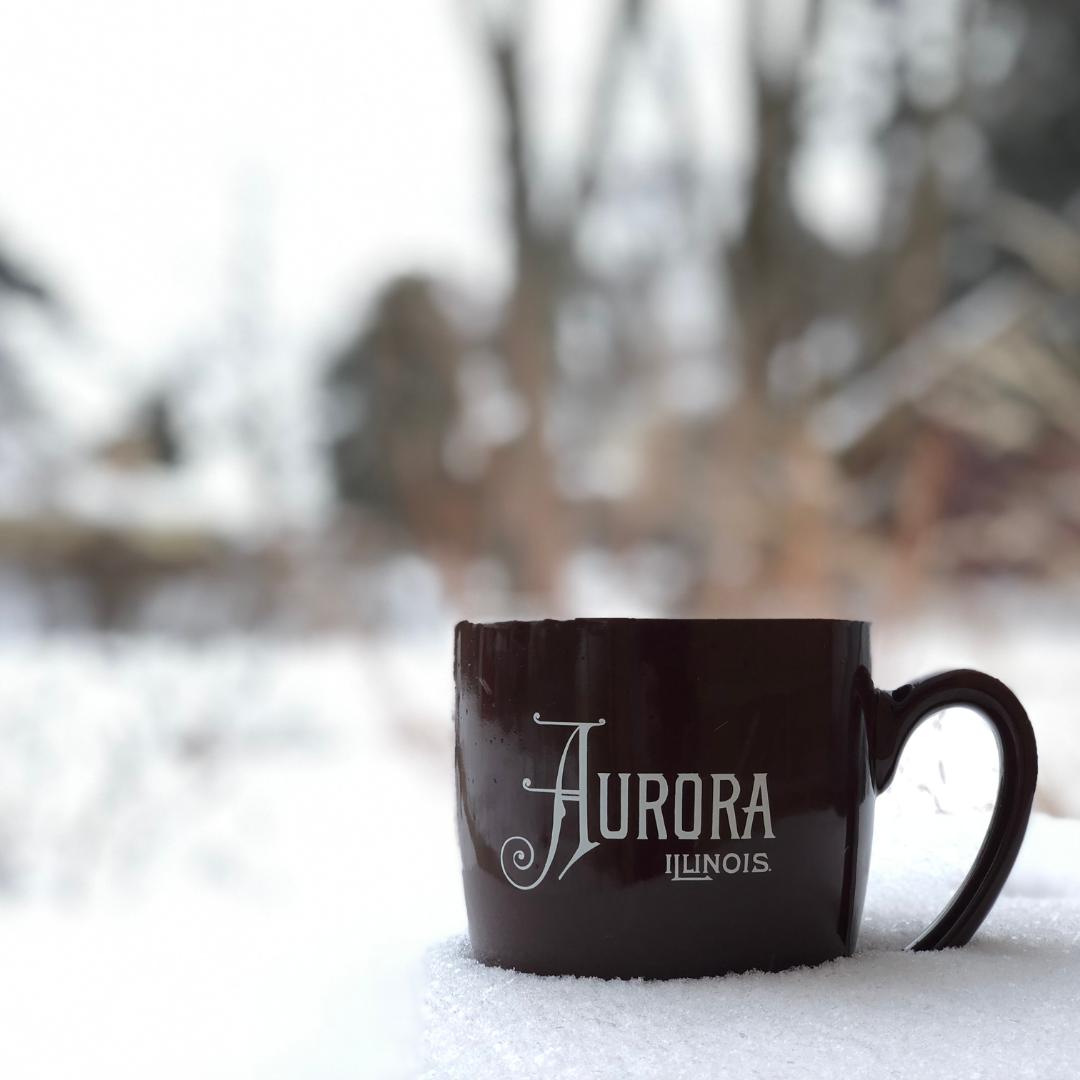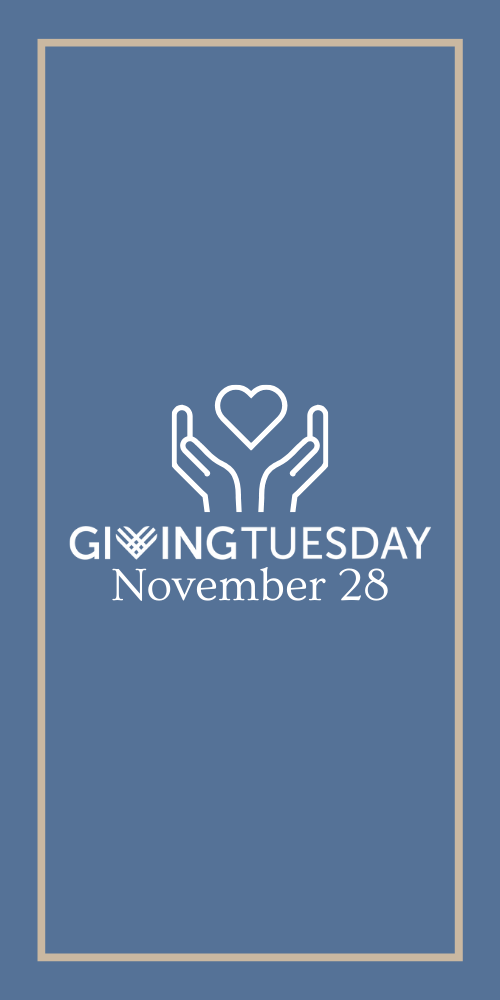There is an ancient European tradition that every four years, on Leap Year Day, a young maiden, in a role reversal, could ask a gentleman to marry her. In some areas, any man refusing could be penalized with a fine.
Beginning in 1932, and for decades afterwards, Aurora built on this “turnabout day” tradition and took it one step further. The eligible young women actually took over running the city for the day. To be sure, at that time there were already plenty of women in the workforce—as nurses, teachers, secretaries, telephone operators, and shop clerks. But there were almost no women in law enforcement, in the fire department, or in elected positions.
By citywide vote conducted through ballots in the Beacon-News, a female Mayor, Police Chief, Fire Chief, aldermen, other officers were elected for one day. Additional girls were appointed to various positions such as police officer and fireman. This force of young, never-married females, usually about 19 to 24 years old–made up what was known as the “powder puff brigade” or “the petticoat government.”
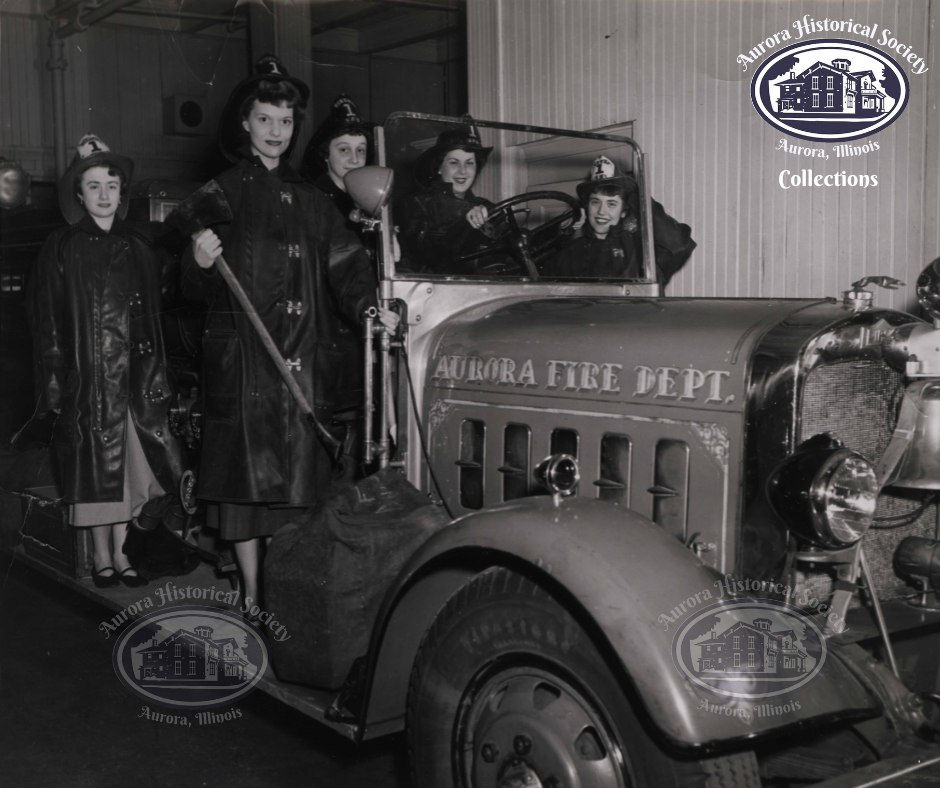
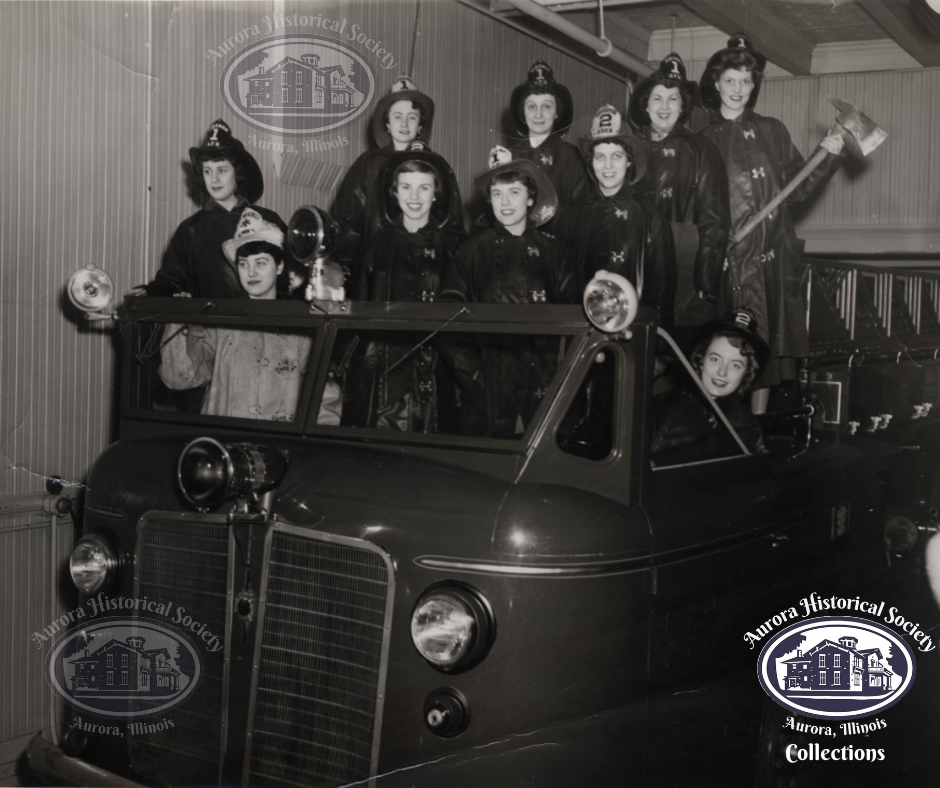
Bachelorhood became a crime on that special day, and offenders—unmarried men 21 or older—were subject to arrest, jail, and fine by the women now in power. They patrolled the city from the early morning hours, hunting down bachelors in their homes, their places of business, and even at the commuter station. In 1952, one unfortunate fellow was pursued a full two miles by the girls, “on foot and in their squad car, which they drove across an open prairie where he was finally cornered.”
The tradition was interrupted in 1944, with America in the midst of the Second World War. Many of Aurora’s eligible young men were away fighting. The Aurora City Council cancelled the celebration “on the theory that bachelors remaining in town these days are either too young or too old.” At any rate, a number of its young women were also in the service; many of those at home were performing essential war work in the factories, in jobs formerly occupied by men.
After the war, in 1948, the Leap Day practice was back with a vengeance–over 15,000 votes were cast for Mayor in a three-way race. In those early years, through 1948, fines assessed were items such as dresses, silk stockings, lingerie, flowers, and candy.
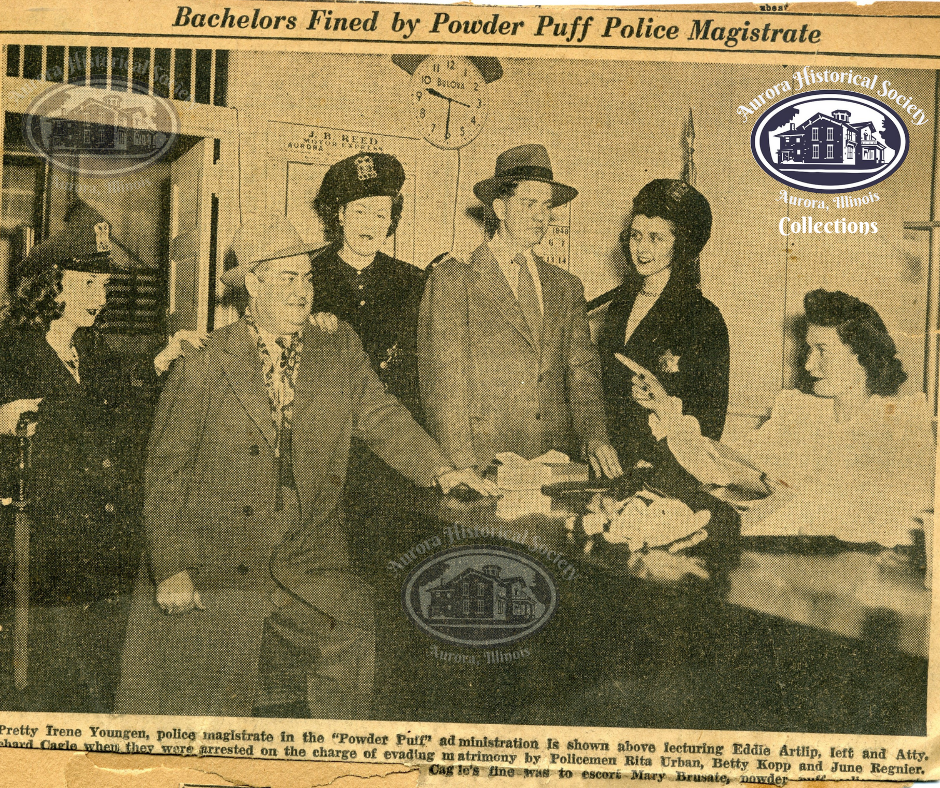
Starting in 1952, it became a charitable event—with monetary fines going towards causes like the Heart Fund and the blood bank. In 1956, individual fines of $3.00 each amounted to $1,200 for the Heart Fund.
The VFW took over management of the event in 1964, and continued to run it until the end, while its popularity did not cease. In 1964, over 300 bachelors were detained and fined. In 1968, over 21,000 ballots were cast in the voting. And in 1976, over $3,100 was raised for Dr. Eugene Balthazar’s free clinic.
The event was still held in 1980, when Cheryl Von Hoff (our current City Clerk) was elected Mayor for the day. Today, the whole notion may seem quaint or even offensive to some, but Von Hoff recalls that even as late as 1980, she heard no negative comments, and saw a lot of community participation in a general spirit of “good fun.”
In 1984, there was opposition to the event from Alderman Anne Baumann, who called it sexist. And in 1988, the Aurora Beacon finally pronounced the event dead, noting that “interest this year has almost been non-existent.” At the time, Aurora Mayor Dave Pierce did acknowledge a few telephone calls from people wondering if the event would take place—some even came from news organizations around the country. Other calls were more local. According to Pierce, “One woman called with a list of gentlemen she wanted picked up.” Old traditions die hard.
Note: Information drawn from contemporary articles in the Beacon-News and the Chicago Tribune.

